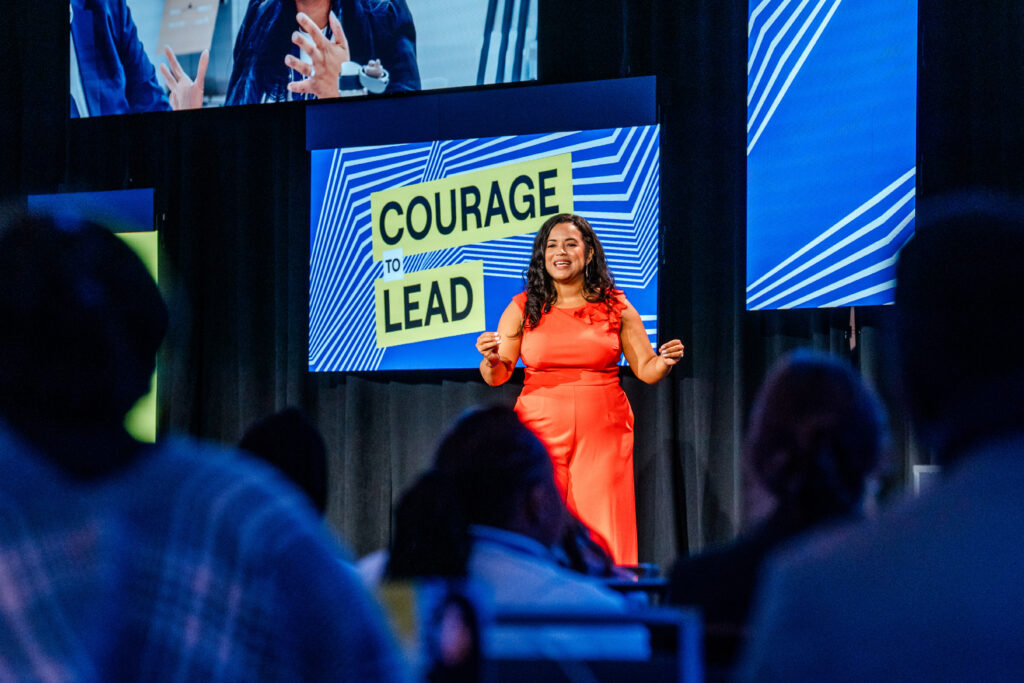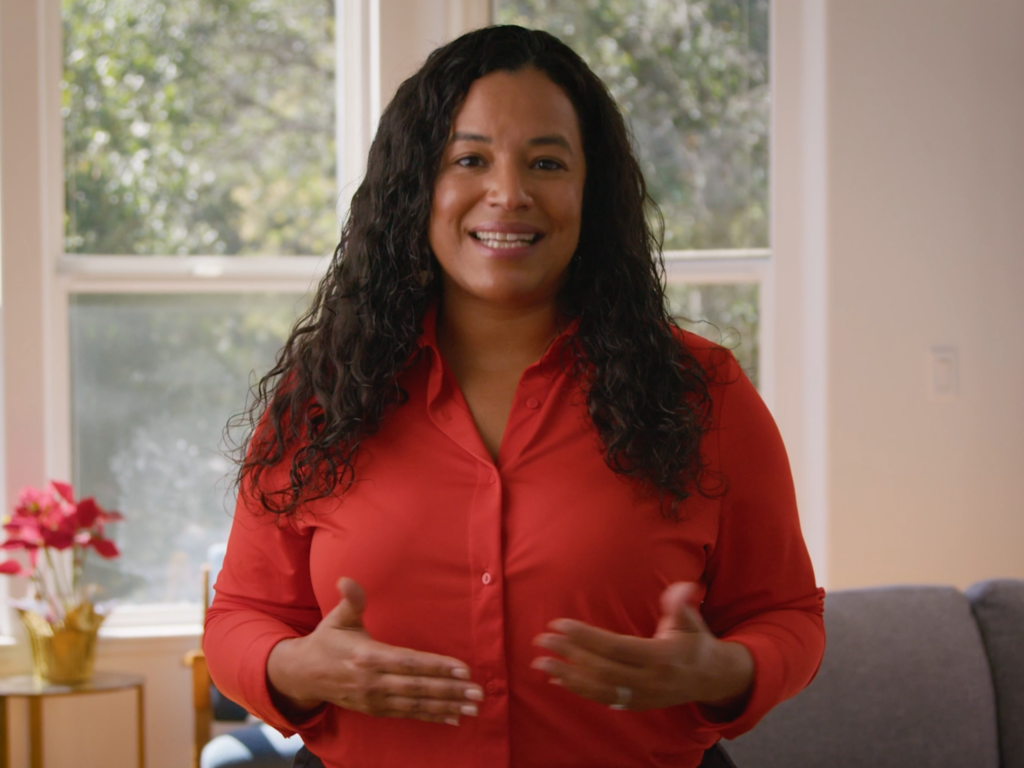Our Seed Fund supports high potential entrepreneurs developing technology solutions for the biggest challenges in K-12 education. We look for areas where the power of technology can improve our education system and its ability to maximize the learning 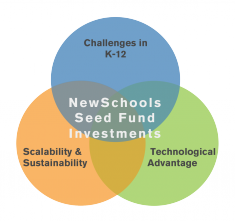 potential of every child. We borrow our approach from venture capital¹ in that we develop investment theses informed by listening to educators, researching technology trends, studying student achievement data, and listening closely to the practitioners in our schools and organizations.
potential of every child. We borrow our approach from venture capital¹ in that we develop investment theses informed by listening to educators, researching technology trends, studying student achievement data, and listening closely to the practitioners in our schools and organizations.
In contrast to a fixed theory of change, we are continuously updating, modifying and revising our theses as we gain more visibility. Most of our investing is thesis-driven though we remain open to breakthrough ideas where the entrepreneur is educating us on the opportunity.
Below are three of our investment theses (in no particular order) and how some of our investments line-up against them. The remainder will come in follow-up posts.
The STEM skills crisis
The greatest unmet demand in our economy is for STEM-related jobs. Two million high-demand, high-skilled jobs go unfilled in the US because employers can’t find enough qualified workers. It’s also an equity issue: females, Blacks and Latino’s are critically under-represented in some of the fastest growing and highest valued consumer technology companies like Facebook, Google and Twitter.
Approach
Our thesis is founded on two data points: a) about 50% of HS math and science classes are taught by a teacher with inadequate background² b) more than 60% of students who chose a STEM career did so because a teacher sparked their interest³.
Given the importance of teachers to inspire and prepare our children for STEM fields, we seek education technology startups targeted at helping teachers. Specifically, we look for content companies to bolster teachers’ STEM knowledge and support their efforts to deliver high-quality instruction even when they lack the requisite certification, background or skills (as often is the case with computer science).
 |
Tynker is a computational thinking curriculum for K-8, targeted at educators without a background in computer science.
|
 |
CodeHS is a coding curriculum for High Schools, targeted at educators without a background in computer science. |
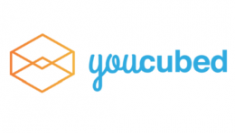 |
YouCubed was founded by Stanford University professor Jo Boaler. Their mission is to harness the power of new technologies to transform mathematics education in the US and beyond by, helping teachers combat myths about failure and ability.
|
| Mystery Science is an elementary science curriculum helping teachers to deliver inspiring and high-quality lessons even when they lack a science background.
|
|
| CodeNow introduces under-represented high school students to computer programming through partnerships with leading technology companies and their software engineers.
|
|
 |
MotionMath makes rigorous and fun math learning games. |
Relevance matters more than ever
School is becoming less relevant to children all over the world who now carry in their pockets access to the world’s knowledge, not to mention addictive video games. But even before smartphones, school’s suffered from a relevance crisis, described by Y Combinator founder Paul Graham:
…we never had anything real to work on. Humans like to work; in most of the world, your work is your identity. And all the work we did [at school] was pointless, or seemed so at the time. At best it was practice for real work we might do far in the future, so far that we didn’t even know at the time what we were practicing for. More often it was just an arbitrary series of hoops to jump through, words without content designed mainly for testability. (The three main causes of the Civil War were…. Test: List the three main causes of the Civil War.) http://www.paulgraham.com/nerds.htmlOver a million students per year dropout, failing to see the relevance of school to their future. Another 250,000 opt to attend school full-time online, without a live teacher. Virtual schools are the fastest-growing category of school choice with enrollment jumping 21% last year while enriching online providers like K12.com. Schools have struggled to define their relevance for decades but the problem has become more acute with smartphones and everywhere access. Children can find answers, code, connect to an online community, build, sell things, blog, review and learn online — all without schools. We are becoming increasingly connected and it’s not just our laptops or smartphones. The Internet of Things (IoT) is coming. In just six years, Gartner estimates that 26 billion devices will be connected to the internet (e.g. your plant pots, watch, scale, and things we cannot yet conceive of).
Approach
Our thesis is that technology can help bring the real world into the classroom, making it more relevant. Children are naturally hungry for authentic problems to solve, real content to delve into and opportunities to create and contribute to our world. Not only can we help children better understand why the content and skills they are learning matter, but to also apply their learning to build something of value for themselves and community.
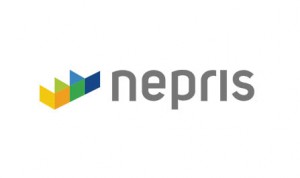 |
Nepris enables collaboration between educators and industry professionals to bring real world relevance to every classroom to engage students in STEM, to expose them to real job skills and to inspire them through role models.
|
 |
Newsela publishes high-interest news articles daily at five levels of complexity. Newsela develops nonfiction fluency and critical-thinking skills necessary to master informational text.
|
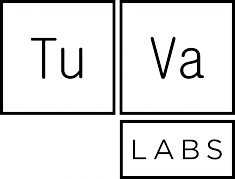 |
TuvaLabs empowers students to think critically about data, ask meaningful questions, and communicate their observations and findings. TuvaLabs pushes students to use their knowledge, values and skills to become active members of their own communities and global citizens of the world.
|
| ListenWise teaches students to Listen with the Power of Public Radio and makes it easy to bring authentic voices and compelling non-fiction stories to the classroom. |
Better communication leads to better educational outcomes
At a basic level, education is communication between parent, teacher and child, or in ed-school jargon, the Golden Triangle. It is critical to optimize for better communication because it has a significant impact on a child’s school performance.
Approach
Technology can reduce communication friction and enable more effective, frequent and purposeful communication between parent, teacher and child. Schools are just beginning to utilize basic communication tools that consumers have been using for years like text messaging, news feeds, translators, push email and social networks. We seek out startups leveraging consumerlike communication technologies to help parents, teachers and children better understand and support each other. This area, in particular, is undergoing major change. Currently, our focus is to dramatically improve parent engagement rates through tools that invite parents into the learning process and encourage a positive partnership between parent, teacher and child.
 |
Class Dojo is a classroom tool that helps teachers improve behavior and involve the parent in that process.
|
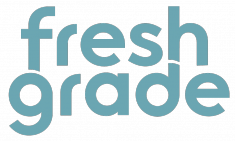 |
FreshGrade is a next generation gradebook and communication platform that aligns parent, student and child in the learning process.
|
| Schoolmint reduces the friction of school enrollment/admission by managing the process simply and securely. |
¹Of course, the big difference between us and a venture capital firm is that we are optimizing for impact, not money.

